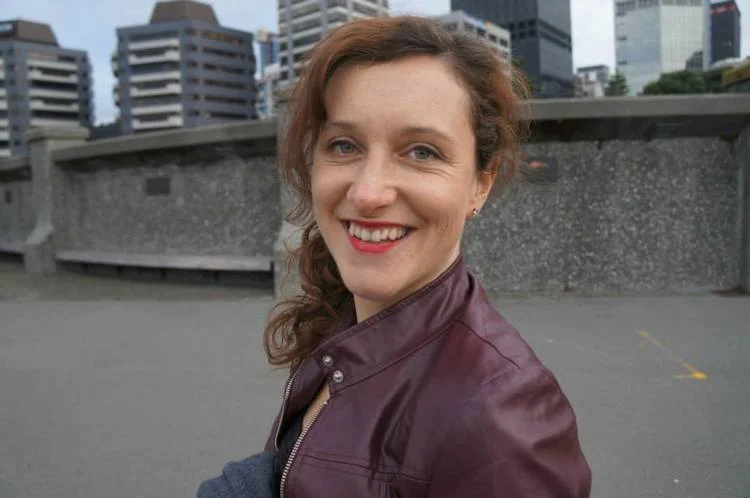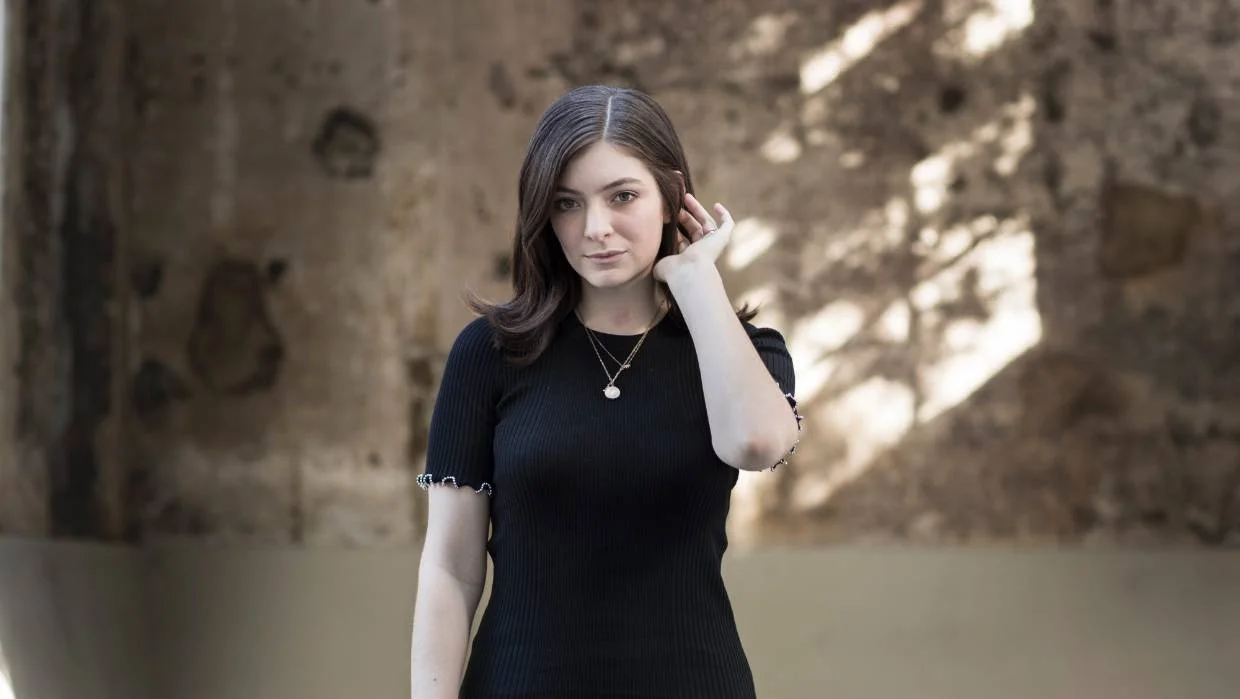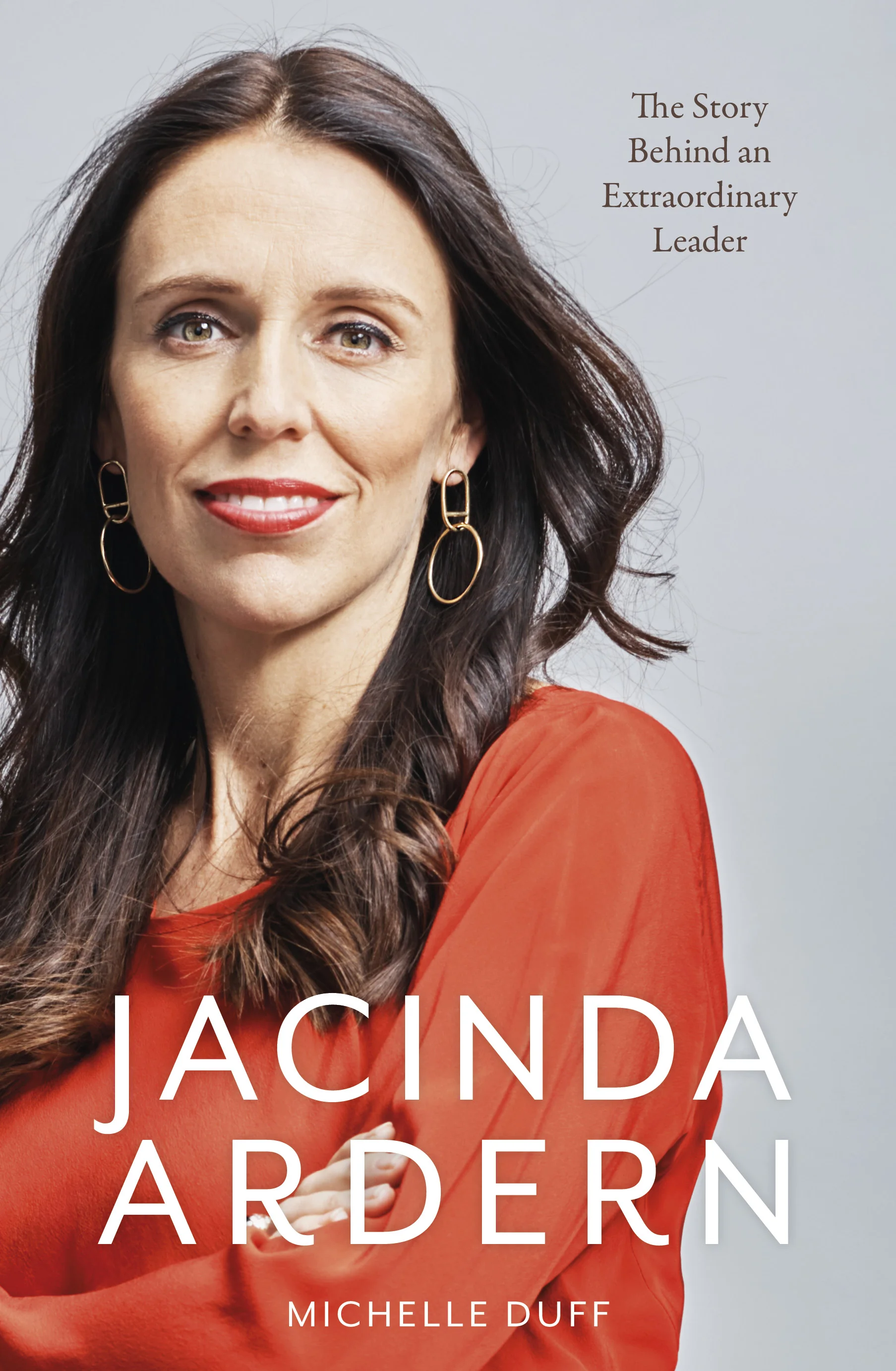Knowing, and not knowing Lorde
To get into Wellington club Mighty Mighty, you ascended a set of steps, yet somehow ended up underground. There were no windows, or if there were, they were sheathed by velvet curtains which also hid the corners, so it was never entirely clear where the space ended and began. How did you get here? Why was that DJ wearing a horse head? Did Castlepoint Draught taste any good outside of this subterranean space?
It was in this now-defunct institution where I first heard Lorde, then 16. It was dark, and she wore black and her hair was all over her face. She said nothing, sang incredibly, and was ushered past an adoring crowd of phone-wielding fans after less than an hour. "Just seeing her is enough," one gushed. It was possibly the weirdest gig I've been to.
One cold and sunny Friday, four years later, Lorde comes bounding up the stairs of Auckland's Universal Music and extends her hand. "Oh, who's this?" she asks, bending down to greet my toddler, who is throwing decorative rocks around the reception area.
“I have the strange feeling I know both everything about her, and nothing at all.”
Her dark hair is straight, her makeup pared back; gone is the dark Pure Heroine-era lipstick. She is sophisticated in a black, figure-hugging dress, chunky boots giving her look a rock-star edge. Through the door behind her no less than ten people file in, including her tour manager, bodyguard, makeup artist, and her mother, Sonja Yelich. Lorde grins. My son hands Yelich a rock. "Cool, should we do this?" she asks, leading the way into a tiny, airless room, where: "Oh, this is so funny," she says, looking around. "This is where I used to do all my interviews."
In person, Lorde is open, effusive, and witty. She has a coiled-spring energy about her, and is surprisingly honest and engaging for someone who has done, at her count, more than 500 interviews. “It sort of struck me a couple of years into doing press stuff that I have a say in how I come across,” Lorde says. “I find it super empowering to know I can decide what we’re talking about, to an extent.”
I kind of hate myself for writing this, particularly after just reading a Daily Telegraph story comparing her to a witch, but her eyes really are luminous.
It’s two months since Lorde released Green Light, the first single from her new album, Melodrama, out next Friday, June 16. A New York Times article, The Return of Lorde, was the first of a rush of new press - Vanity Fair, Rolling Stone, Vice - and gigs like New York’s Governor’s Ball. What will she be doing the night before her album release?
“Let’s look at my calendar,” she says, scrolling through her phone. “The night before my album comes out I will be...June...ah yes...it says: ‘Hold [for] Seth Meyers and Jimmy Fallon,’ so I guess that’s what I’ll be doing.” She laughs, self-deprecatingly, at the fact she will be appearing on two of America’s biggest talk shows. “So I guess I’ll be taping a bunch of TV. I’ll probably just be sitting in my hotel room making my peace with it all.”
THE START
Within six months of it’s release in 2013, Lorde’s debut album Pure Heroine sold more than a million copies and propelled the precocious young musician to worldwide fame. The pure pop brilliance of Royals, written with Joel Little, made Lorde the envy of Hollywood hitmakers. Which is funny because at the time, Lorde says, she felt like she had to go in gunning for her work.
“There wasn’t a guidebook for doing it exactly how I have done it,” she says. “For me, it was really fighting off a lot of outside factors to protect the thing that I was trying to propel forward.
“Now I know from friends who work at labels that they say in meetings: ‘Okay we need a Lorde-style act,’ which is an insane thing to think.”
After winning best song and solo performance at the 2013 Grammy Awards and topping America’s music charts, her megastar status was cemented. She counts Taylor Swift and Lena Dunham, whose partner Jack Antonoff co-produced Melodrama, among her friends. David Bowie famously once clasped her hands and told her Pure Heroinewas the sound of the future.
Over the three years she’s been writing her second album, she’s been trying not to let the resonance of the first get to her. “There is that question of ‘How do I follow up something like that?’ and I’m definitely of the belief that - certainly with a song like Royals - that’s a unicorn, you know,” she says. “If I never have a song that does that again I’m not going to beat myself up because [Joel and I] didn’t know what we were doing. It was a fluke.
“I would much rather try and make great records as opposed to trying to push everything into the shape of a stratospheric song.”
If Pure Heroine was her way of “enshrining our teenage glory, putting it up in lights forever so that part of me never dies,” as she told Facebook fans in March, then Melodrama is a step into newer and rawer territory. It charts the course of a single night at a house party and comes in the wake of her breakup with photographer James Lowe but isn’t, as she told the New York Times, a breakup album. “It’s a record about being alone. The good parts and the bad parts.”
In it, we hear Lorde, undone, in a way we haven’t before. In Perfect Places, she sings: “All the nights spent off our faces trying to find these perfect places / What the f... are perfect places anyway,” with just piano keys for company. In Liability, she wails: “I understand / I'm a liability / Get you wild, make you leave / I’m a little much for everyone.”
“It’s very bratty, and to me that song is very much embodies the idea of melodrama. Saying ‘I am a toy, people enjoy me until they just don’t anymore,’ that’s such a bratty, 19-year-old thing to say. I feel, you know like: ‘It’s all gonna be fine, buddy.’ But in that moment, it wasn’t, and that’s sort of what melodrama is.”
Well when those things happen, it can feel like the end of the world.
“Yeah! Like, these fleeting moments of emotion, it may not last but it is so potent in that moment that you want to do it justice, even though it’s immature or over the top. There’s such a self-awareness to that, just wallowing in feeling like a pain,” she accentuates, “Which is how I felt.”
Was writing it quite therapeutic, then?
“As soon as I had written that song I had this amazing little suit of armour, because it was like ‘Well I’ve already voiced everything that could go wrong, it can’t really bite me much more than this’.
“There is an empowerment to this record, and it is about kind of getting to know yourself and coming to love yourself, and enjoying your own company and caring for yourself in the wake of a break up or transitional time.”
She wrote and produced the entire album with Antonoff, with collaborators including Joel Little on a few tracks, including Green Light. “For the most part I really do like making records in quite a dialed-in way with just a couple of people, I think that it makes for a cohesive record,” Lorde says. “When you’ve spent two years with someone it’s easy to be like ‘I’m a real piece of s...’ in the way you can’t be like with someone you’ve just met.”
Melodrama was written to a soundtrack of greats like Don Henley, Tom Petty, Paul Simon and Joni Mitchell. “Just heavyweight songwriting work, you know. I find it so fascinating and inspiring.” But while the result is a more layered album, her music explores the same principles, she says - the dynamics between big and small, between grand, intense feelings and private, intimate ones, “Whether it be my voice and a beat, or me at home and the world outside my house.”
KEEPING A LOW PROFILE
In the past three years I’ve seen Lorde at inner-city Auckland hangouts like Dominion Rd’s Barilla Dumpling, Tanpopo Ramen, and K’Rd cocktail bar Peach Pit. Each time she’s been with friends, and spotting her has almost been awkward; you want to turn again to make sure it is Lorde, but you don’t want to make a spectacle of yourself. It’s a very New Zealand way of treating a celebrity - you see them, but you don’t necessarily want to make a big deal of it.
“Well, I’ve never made it about like: ‘Follow me as I go to dinner because I’m going to be in a really nice outfit and I’m going to go to a restaurant where all the paparazzi hang out and you can see me there’,” Lorde says. “I’ve made a real conscious effort to avoid that.
“I guess it sort of feels the same as if you were from a rural town and you were like crushing the sheep shearing contest every year and everyone was like ‘oh, there’s that awesome sheep shearer girl’,” she goes on, revealing a complete lack of knowledge in farming terminology. “You know what I mean?”
I do. Does she ever feel like fame robbed her of any formative experiences though?
“Not really, because everything I missed out on I made up for in getting to do all the stuff that other people don’t. I never mourned anything, like ‘Oh I wish I’d never left school, or I wish I’d gone to my seventh form ball’,” she says. “When I transitioned to being more career-focused, I was really ready for that.”
So what next for Lorde? Is she the Madonna of her era, set to make music for decades?
Lorde laughs. “Well she’s amazing, I don’t know if I’m quite good enough to do that.”
She will definitely always write, she says. She has bought a piano, and is working on improving her technical skills with the aim of one day solo-producing an album. “That would be the dream.” She is involved in the lighting design for her shows, and wants to be able to do this alone, too.
“I know that I’m going to be making music for a long time. It’s just, this sounds stupid, there’s just so many songs to write. I’m excited to see where I get to as a songwriter, I have so much learning to do and I’m excited to just keep getting better.”
A minder knocks: does she want a makeup touch-up before the photo? Lorde half-rolls her eyes. “I’m fine, I don’t think I did too much damage,” she jokes.
After the photograph, she pulls me in for a hug. “Thanks so much!” she says, bounding off in the wake of another minder, who is carrying a Gucci t-shirt and shoes inside for an outfit change before the next interview. I leave, with the strange feeling I know both everything about her, and nothing at all.



